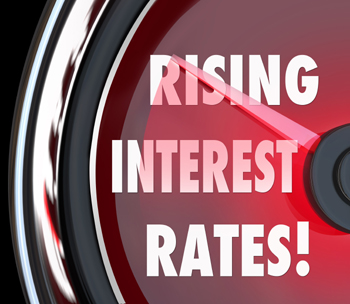Refer Nerd Wallet April 16, 2020. The Federal Reserve took steps in March to keep money flowing through the mortgage financing system. The actions, including two rate cuts, were part of the central bank’s broader efforts to protect the economy from more damage from the COVID-19 pandemic.
flowing through the mortgage financing system. The actions, including two rate cuts, were part of the central bank’s broader efforts to protect the economy from more damage from the COVID-19 pandemic.
Rates on fixed-rate mortgages and home equity lines of credit have fallen since the Fed pledged to buy billions of dollars’ worth of mortgage-backed securities and cut short-term rates. But fewer homes are being put on the market and mortgage applications are down, heralding a decline in home sales.
What factors determine mortgage rates?
Your mortgage rate is like the display on a digital wristwatch: You see a number, but you don’t see the complex calculations concealed beneath. The most important thing to know is this: When it comes to determining your mortgage rate, some elements are under your control and some aren’t.
There are seen and unseen factors that determine your mortgage rate. With awareness of these factors, you can feel more confident about getting a competitive interest rate when you choose a mortgage lender.
Mortgage rate factors that you control
Lenders adjust mortgage rates depending on how risky they judge the loan to be. The riskier the loan, the higher the interest rate.
When judging risk, the lender considers how likely you are to fall behind on payments (or stop making payments altogether), and how much money the lender could lose if the loan goes bad. The major factors are credit score and loan-to-value ratio.
Credit score
The lowest and best mortgage rates go to borrowers with credit scores of 740 or higher. These borrowers have the broadest choice of loan products.
The lowest and best mortgage rates go to borrowers with credit scores of 740 or higher.
Interest rates tend to be a little higher for borrowers with credit scores of 700 to 739. For borrowers with credit scores from 620 to 699, mortgage rates are even higher. These borrowers might find it difficult or impossible to get high-amount jumbo loans.
With a credit score below 620, the interest rates are even higher, and options are fewer. Most of the loans available at this level are insured or guaranteed by the government.
Loan-to-value ratio
The loan-to-value ratio measures the mortgage amount compared with the home’s price or value. If you buy a house for $100,000, put $20,000 down and get an $80,000 mortgage, you’re borrowing 80% of the home’s value, so your loan-to-value ratio is 80%.
If your loan-to-value ratio is greater than 80%, it’s considered high, and it puts the lender at greater risk. This may result in a higher mortgage rate, especially when combined with a lower credit score. The loan will usually require mortgage insurance, too.
Ruth Schoenherr is a mortgage broker who will help you find home loans in the Clearwater, Palm Harbor, Largo, Safety Harbor, St Petersburg and Tampa Bay area. For more information, go to her web site at www.ClearwaterMortgageBroker.net or call at 727 447-2418.
